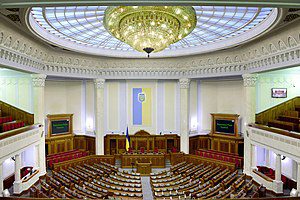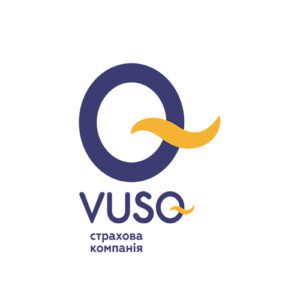
The European Solidarity parliamentary faction calls for an extraordinary plenary meeting of the Verkhovna Rada, co-chair of the faction Artur Herasymiv said.
“European Solidarity demands to convene an extraordinary meeting of the Verkhovna Rada with an agenda that will correspond to the realities and problems of today. That is why we are writing a letter to the Chairman of the Verkhovna Rada of Ukraine [Ruslan Stefanchuk] so that the extraordinary meeting of the Verkhovna Rada was urgently convened, for this we will receive subscription lists and collect signatures of MPs,” Herasymiv said.
He said the agenda of such an extraordinary meeting should include a report by the President of Ukraine on the state of defense and foreign policy, subject to the threat of escalation due to the Russian armed aggression, a report by the Prime Minister on the measures taken to overcome the crisis in the economy and price increases, in particular for energy and utilities, the report of the Defense Minister on the provision of the Armed Forces of Ukraine, including fuel and lubricants, and the implementation of the 2021-2022 state defense procurement order, the report of the Energy Minister on the state of the energy industry amid the problems of the heating season, cuts in heat and electricity in residential buildings, as well as imports of electricity and coal from Russia and Belarus.
European Solidarity also calls on to hear the report of the Health Minister on minimizing the negative consequences of COVID-19 epidemic (providing vaccines and oxygen for 2022, increasing salaries for doctors and “COVID” payments), as well as instructing the Cabinet of Ministers to apply measures to provide from January 1, the minimum amount of cash support for servicemen of the Armed Forces of Ukraine at a level not lower than two times the average salary.

Pivdenny maritime merchandise port transported 16.7 million tonnes of cargo in 2021, which is 2.1 million tonnes or 11.17% less than in 2020 (some 18.8 million tonnes of cargo), according to the port website.
In 2021, the port handled 13.8 million tonnes of export cargo, 2.14 million tonnes of imported cargo and 747,000 tonnes of transit and coastal cargo.
Last year, 229 vessels were handled at the berths of the state stevedore, 102 of which are large-capacity Capesize bulk carriers. In particular, in 2021, the state stevedore unloaded three vessels with wind turbine elements, including 79-meter blades, and four vessels with thermal coal for Centrenergo and DTEK.
The port notes that export cargo accounts for 83% of the company’s cargo turnover.
Pivdenny maritime merchandise port specializes in transshipment of bulk, general and packaged cargo transported by sea, rail and road. It operates five deep-water berths, two of which handle Capesize vessels, loading them to full cargo capacity.
Pivdenny port was founded in 1978. It is located on the banks of the Adzhalyk estuary and is the deepest in Ukraine. The total length of the berths is about 2.6 km.

The National Bank of Ukraine (NBU) on December 22, 2021 allowed Altituda closed non-diversified venture corporate investment fund on behalf of, in the interests and at the expense of which PrJSC AMC Altera Asset Management operates, to directly acquire 99.593% of shares of PrJSC Ukrainian Joint-Stock Insurance Company ASKA (Zaporizhia), according to the website of the central bank.
According to the National Securities and Stock Market Commission, as of the third quarter of 2021, Altituda owns 66.0075% of the shares of PrJSC Insurance Company VUSO (Kyiv).
As reported at the end of November 2021, SCM investment company of Rinat Akhmetov announced that it had reached preliminary agreements on the sale of ASKA to VUSO insurance company. The completion of the transaction and the transfer of the corporate rights of ASKA to the buyer must be carried out after all procedures stipulated by the law, obtaining permits and approvals from the NBU.
On December 22, 2021, the NBU decided to cancel 34 licenses for insurance issued to ASKA on the basis of its application, except for the license for compulsory insurance of civil liability of land vehicle owners (OSAGO).
The company was engaged mainly in property types of insurance: property insurance, that against fire risks and risks of natural disasters, cargo and luggage and financial risks.
According to the statements presented by ASKA for the nine months of 2021, the volume of insurance premiums amounted to UAH 853.75 million, the value of assets – UAH 501.1 million, the market share in insurance reserves – 2.55%.
At the same time, the company announced the presence of unfulfilled (overdue) obligations to policyholders (beneficiaries) and valid insurance contracts. At the same time, it provided information on the availability of formed insurance reserves.
ASKA is the first private insurance company that appeared in independent Ukraine, has been operating for over 30 years. It is part of the portfolio of the international investment company SCM.

KSG Agro agricultural holding will increase rapeseed crops this year by at least 22% from 820 hectares last year to at least 1,000 hectares in 2022, in order to increase the harvest of winter wheat, according to a press release from the group of companies on Monday.
At the same time, the cultivation of winter wheat in areas where rapeseeds were previously sown, allows to increase its yield by 5-10 tonnes per ha.
“Our strategy is to reach at least 1,000 hectares of cultivated areas under rapeseed. We harvest rapeseed in June, and until mid-September it allows us to prepare the soil well, having accumulated a sufficient amount of moisture in it. As a result, the wheat that we sow on these sown areas gives good shoots and has time to open up,” the press service of KSG Agro said, quoting Production Director Dmytro Emelchenko.
The similar decision allowed the agricultural holding in 2021 to get an increase in the yield of winter wheat at the level of 5-10 tonnes per ha compared to wheat sown after sunflower.
The vertically integrated holding KSG Agro is engaged in pig breeding, as well as in the production, storage, processing and sale of grain and oilseeds. Its land bank is about 21,000 hectares in Dnipropetrovsk and Kherson regions.
National bank of Ukraine’s official rates as of 10/01/22

Source: National Bank of Ukraine